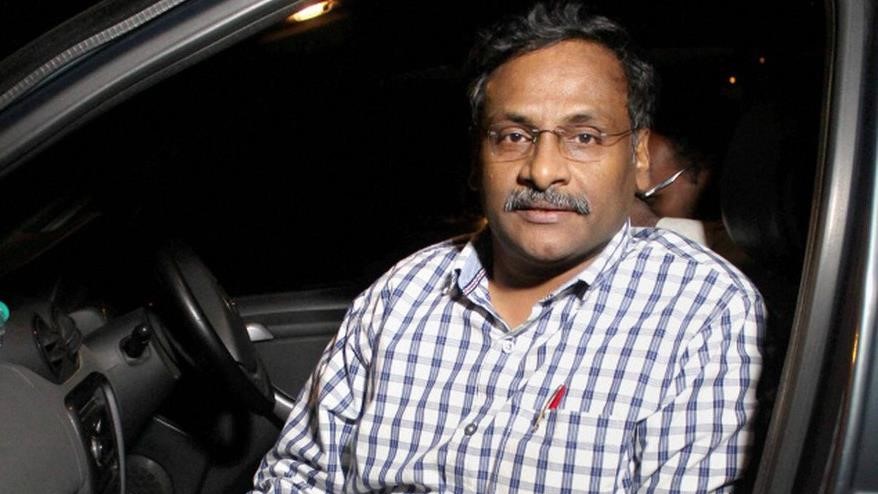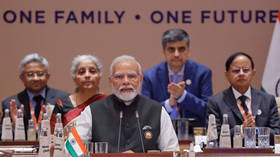NOVANEWS
By Sajjad Shaukat
Every year when India celebrates Independence Day on August 15, Kashmiris on both sides of
the Line of Control and the world over observe it as Black Day to convey the message to the
international community that India continues to usurp their inalienable right to self-
This very day is being marked by complete shutdown, as deserted streets, closed businesses and
security patrolling the streets could be seen in the Indian-held Kashmir. Noting intensity in the
war of liberation and hoisting of Pakistani flags by the Kashmiri protesters, this time, Indian
occupation authorities have imposed stringent restrictions in Srinagar and other towns, and
deployed heavy contingents of police and troops to prevent people from holding anti-India
However, during the partition of the Sub-continent in 1947, the people of the state of Jammu and
Kashmir (J&K) which comprised Muslim majority decided to join Pakistan according to the
British-led formula. But, Dogra Raja, Sir Hari Singh, a Hindu who was ruling over the J&K, in
connivance with the Indian Prime Minister Jawaharlal Nehru and Governor General Lord
Mountbatten joined India.
The Radcliffe Boundary Award gave the Gurdaspur District—a majority Muslim area to India to
provide a land route to the Indian armed forces to move into Kashmir. There was a rebellion in
the state forces, which revolted against the Maharaja and were joined by Pathan tribesmen. Lord
Mountbatten ordered armed forces to land in Srinagar.
Indian forces invaded Srinagar on October 27, 1947 and forcibly occupied Jammu and Kashmir
in utter violation of the partition plan and against the wishes of the Kashmiri people.
When Pakistan responded militarily against the Indian aggression, on December 31, 1947, India
made an appeal to the UN Security Council to intervene and a ceasefire ultimately came into
effect on January 01, 1949, following UN resolutions calling for a plebiscite in Kashmir.
On February 5, 1964, India backed out of its promise of holding plebiscite. Instead, in March
1965, the Indian Parliament passed a bill, declaring Kashmir a province of India-an integral part
of the Indian union.
Kashmiris organized themselves against the injustices of India and launched a war of liberation
which New Delhi tried to suppress through various forms of state terrorism. Passing through
various phases, the struggle of Kashmiris which has become an interaction between New Delhi’s
state terrorism led by the Indian security forces and war of liberation by the freedom fighters
keeps on going unabated.
It is notable that since 1947, in order to maintain its illegal control, India has continued its
repressive regime in the occupied Kashmir through various machinations.
Nevertheless, various forms of state terrorism have been part of a deliberate campaign by the
Indian army and paramilitary forces against Muslim Kashmiris, especially since 1989. It has
been manifested in brutal tactics like crackdowns, curfews, illegal detentions, massacre, targeted
killings, sieges, burning the houses, torture, disappearances, rape, breaking the legs, molestation
of Muslim women and killing of persons through fake encounters.
According to a report on human rights violations in the Indian-occupied Kashmir, since 1989,
there have been deaths of 1,00000 innocent Kashmiris, 7,023 custodial killings, 1,22,771 arrests,
1,05,996 destruction of houses or buildings, 22,776 women widowed, 1,07,466 children
orphaned and 10,086 women gang-raped/molested. Indian brutal securities forces have continue
In fact, Indian forces have employed various draconian laws like the Jammu and Kashmir
Disturbed Areas Act, and the Armed Forces (Jammu and Kashmir) Special Powers Act and
Public Safety Act in killing the Kashmiri people, and for the arbitrarily arrest of any individual
for an indefinite period.
Besides Human Rights Watch, in its various reports, Amnesty International has also pointed out
grave human rights violations in the Indian-controlled Kashmir, indicating, “The Muslim
majority population in the Kashmir Valley suffers from the repressive tactics of the security
In its report on July 2, 2015, the Amnesty International has highlighted extrajudicial killings of
the innocent persons at the hands of Indian security forces in the Indian-held Kashmir. The report
points out, “Tens of thousands of security forces are deployed in Indian-administered
Kashmir…the Armed Forces Special Powers Act allows troops to shoot to kill suspected
militants or arrest them without a warrant…not a single member of the armed forces has been
tried in a civilian court for violating human rights in Kashmir…this lack of accountability has in
turn facilitated other serious abuses…India has martyred 100,000 people. More than 8,000
disappeared (while) in the custody of army and state police.”
In this respect, European Union has passed a resolution about human rights abuses committed by
Indian forces in the Indian held Kashmir.
It is of particular attention that in 2008, a rights group reported unmarked graves in 55 villages
across the northern regions of the Indian-occupied Kashmir. Then researchers and other groups
reported finding thousands of mass graves without markers. In this regard, in August, 2011,
Indian Jammu and Kashmir State Human Rights Commission officially acknowledged in its
report that innocent civilians killed in the two-decade conflict have been buried in unmarked
Notably, foreign sources and human rights organisations have revealed that unnamed graves
include those innocent persons, killed by the Indian military and paramilitary troops in the fake
encounters including those who were tortured to death by the Indian secret agency RAW.
As a matter of fact, Indian authorities are not willing to talk with Kashmiri people on political
grounds. New Delhi reached to a conclusion that only bullet is the right way of dealing with
Kashmiris who are demanding their right of self-determination. Surprisingly, Indian successive
governments are trying to ignore the dynamics of the freedom movement of Kashmiris for the
sake of their alien rule.
Nonetheless, August 15 which is the Independence Day for India, is Black Day for the
Kashmiris and their brethren in Pakistan including those living all over the world, as they re-
affirm their commitment to continue their struggle against Indian illicit occupation, and till the
attainment of their liberation.



